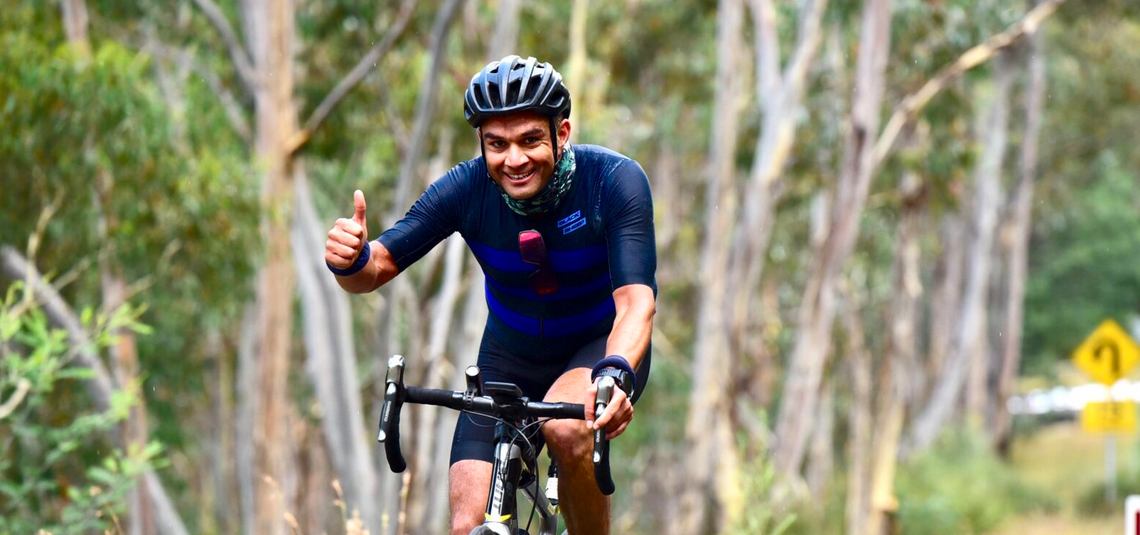How far do you ride in a week? How far do you want to ride? Perhaps most importantly, how far should you be riding? Peter Maniaty spoke to a cross-section of his local cycling community in the search for answers.
We all have a number. Sure, some of us pursue it with greater gusto and discipline than others. But there’s a number nonetheless. For me, that number is a highly unscientific 175km. It’s the minimum distance I try to cover in a normal week, equating to around 9,000km a year.
I’ve ridden considerably more than this on a few occasions over the years. However, right now, for my life this number feels achievable with a bit of effort. It holds my fitness at an acceptable level for social riding and occasional work trips, whilst keeping me (generally) competitive in club races which I aim to do at least once a month. Perhaps most critically, it’s also a number that doesn’t come at the cost of ruining any relationships, at home or work!
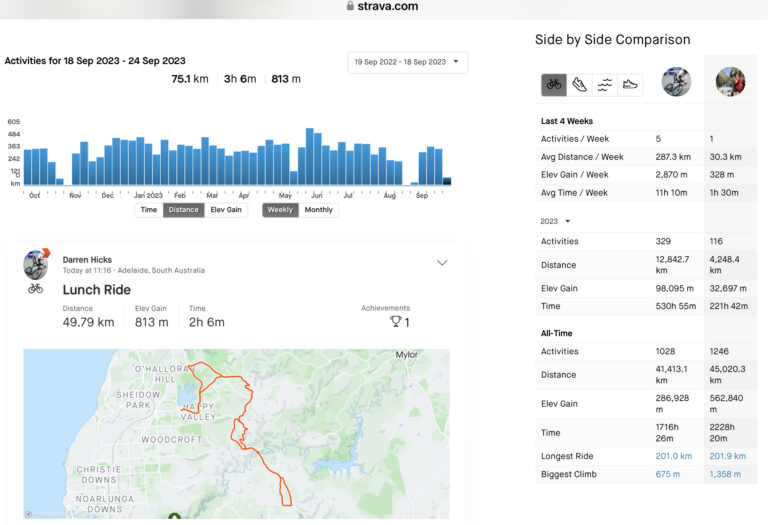
Of course, we’re all different. What’s right for one rider can be completely irrelevant for another. Juggling work and family commitments, health and age, geography and, of course, our own personal goals are all huge influencing factors. Here’s what a selection of folks I know recently had to saywhen I asked them about their ‘magic number’. Perhaps you’ll recognise yourself in some of their musings and motivations.
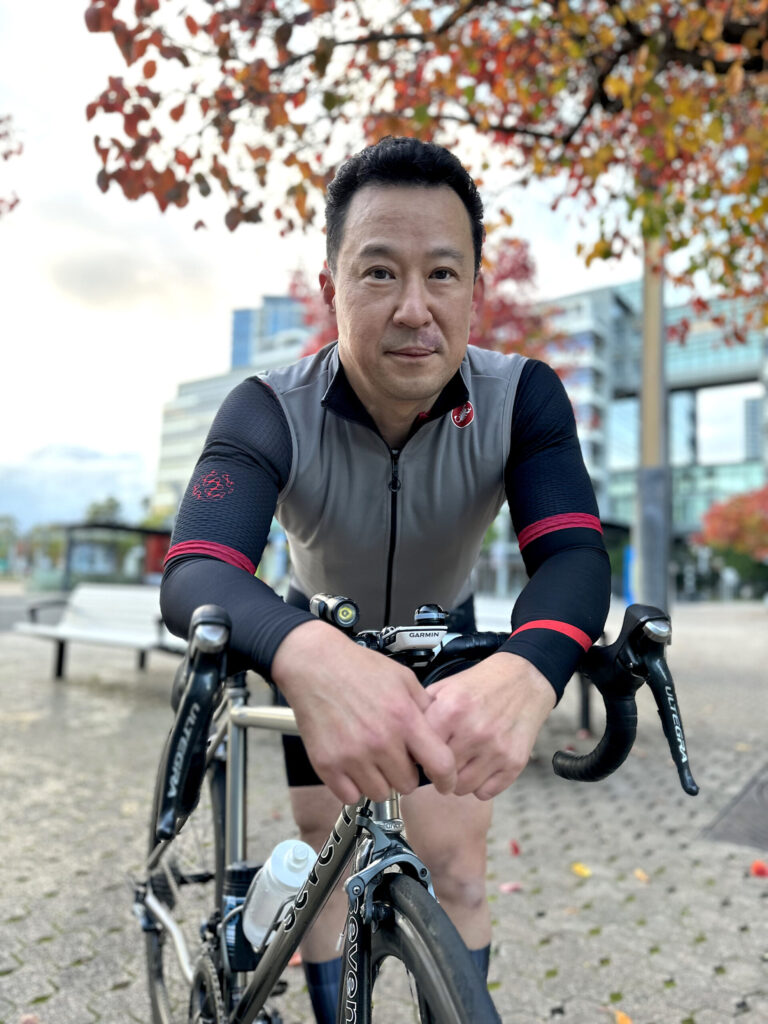
1. Jeong Ki Hong
How would you describe yourself as a cyclist?
I’m a dedicated but average MAMIL and tragic cycling junkie.
Biggest year on the bike?
14,409 km in 2021 according to Strava.
Typical week?
250-300km.
Weekly target?
260km, which is about 13,000km per year.
Why that number?
In 2020 and 2022 I managed 13,000km+ so I set the goal of maintaining at least the same volume for the last few years.
How do you feel if you don’t achieve your goal?
I’m fine if I have valid reason. However, I did fall way behind schedule last year due to all the rain in Sydney and felt quite guilty.
Key factors that influence how far you ride?
My schedule and my condition. If I have a busy week at home and work, then I will be aiming for 250-260km or maybe less.
How closely do you listen to your body?
I’ve been road riding for 20+ years and know when my body (and mind) is under fatigue, so I will take things easier.
Do you use a structured training plan?
Sort of. I’ve never had a formal schedule with specific workouts. But each week I aim for two hard days with max-threshold efforts and then three or four easier days.
Do you pay attention to other riders?
Yes, but not in a competitive way. It’s more curiosity. I’ve learned that I tend to accumulate less climbing metres than someone who rides about the same distance. I would never have known this unless I checked out other people’s Strava data.
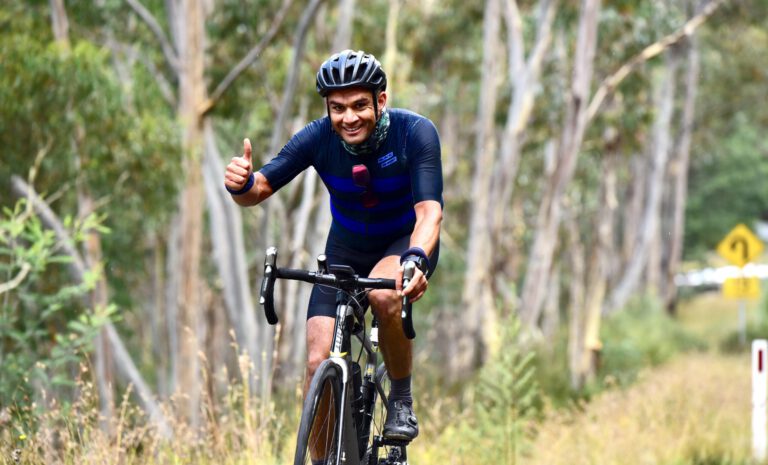
2. Sachit Jamwal
How would you describe yourself as a cyclist?
Roadie who enjoys long distance rides, group rides and a bit of climbing.
Biggest year?
12,500km in 2021. I only started cycling in September 2020 and my friends immediately suggested I sign up for the Three Peaks Challenge.
Typical week?
250km.
Weekly target?
250-300km. My overall target is 1,000km each month. Some weeks are over 300km. Recovery weeks are less than 200km.
Why that number?
From analysing my cycling over the last two years, I know I can achieve 250km a week without too much difficulty.
What if you don’t achieve it?
I’m okay if I have a quiet week as I always try to balance my passion for riding, it’s not just about hitting a number.
Key factors?
If I’m preparing for a long-distance event. If it’s a long weekend. If there is an interesting group ride coming up.
How closely do you listen to your body?
I try to manage body fatigue during the month and usually go with three training weeks followed by a recovery week.
Structured training plan?
Not formally, but each week I do aim for a mix of Zone 2, hard group rides and one long ride.
Do you pay attention to other riders?
No. But I do check if there are new routes, interesting rides or events to add to my future list.
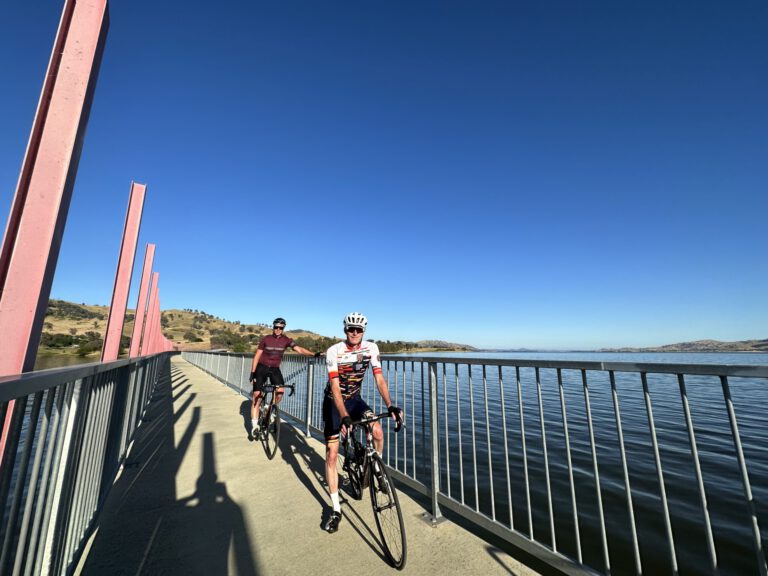
3. Alan Doughty
How would you describe yourself as a cyclist?
I’m a recreational cyclist, but I do enjoy competing in club and open racing, plus other events which fit the calendar.
Biggest year?
8,500km. Most years I’ll ride between 7,500-8,000km.
Typical week?
180km.
Weekly target?
I aim for around 200km. I find the rides I enjoy hurt too much if I fall below that training threshold. Off road kilometres are tough so if my weekly total includes MTB and gravel, 200km will be too much.
What if you don’t achieve it?
It does bother me a bit. But I actually think it’s more because I just miss riding my bike.
Key factors?
The type of riding I’m doing. Then there’s also work, travel, weather, sickness, family and social commitments.
How closely do you listen to your body?
My body type doesn’t respond very well to overtraining. My main aim is to get a mix of intensities. Group rides tend to be flat out, so it can be a challenge to fit in low intensity riding.
Structured training plan?
I have followed programs and been coached at various times, but less so now. Having ridden for so many years I feel I know my sweet spot pretty well. I do use Xert which is an algorithmic based training tool.
Do you pay attention to other riders?
I do and there is definitely an element of peer pressure. I confess also to being a ‘Strava stalker’ where I will check the training volumes of people I meet.
4. Ben Spenceley
How would you describe yourself as a cyclist?
I’d class myself as an elite rider. Last year I raced pro/amateur Kermesses in Belgium and a couple UCI 1.2 events. In Australia I race for Blackshaw in the NRS.
Biggest year?
27,429km back in 2021. I put this down to having two Road Nationals training blocks in the one calendar year. I was also studying full-time and mostly at home, which gave me more flexibility and time.
Typical week?
350-500km.
Weekly target?
I’m not really focused on distance, most of my training is done by duration. Where I am riding can also drastically change how far I ride. Constant communication with my coach allows me to structure my work and life commitments in with my training.
What if you don’t achieve it?
I’m not too fussed. As long as I’m able to achieve my goals of staying fit enough to race at a National level, being competitive and just enjoying my riding.
Key factors?
My work commitments, my racing (and associated travel) commitments and my health.
How closely do you listen to your body?
It’s a really hard skill to master, but very important. I always try to monitor how I’m feeling each day to make sure I’m not getting sick. I communicate any unusual feelings with my coach.
Structured training plan?
I always prefer a structured plan, as most of the time I’m working towards being as fit as I can for an upcoming event. That said, I will have some more spontaneous periods of riding throughout the year, like when I’m coming back from a break or sickness.
Do you pay attention to other riders?
Not really. But if I’m looking for some ride inspiration, I’ll keep an eye on people’s rides to see what sort of loops they’re doing.
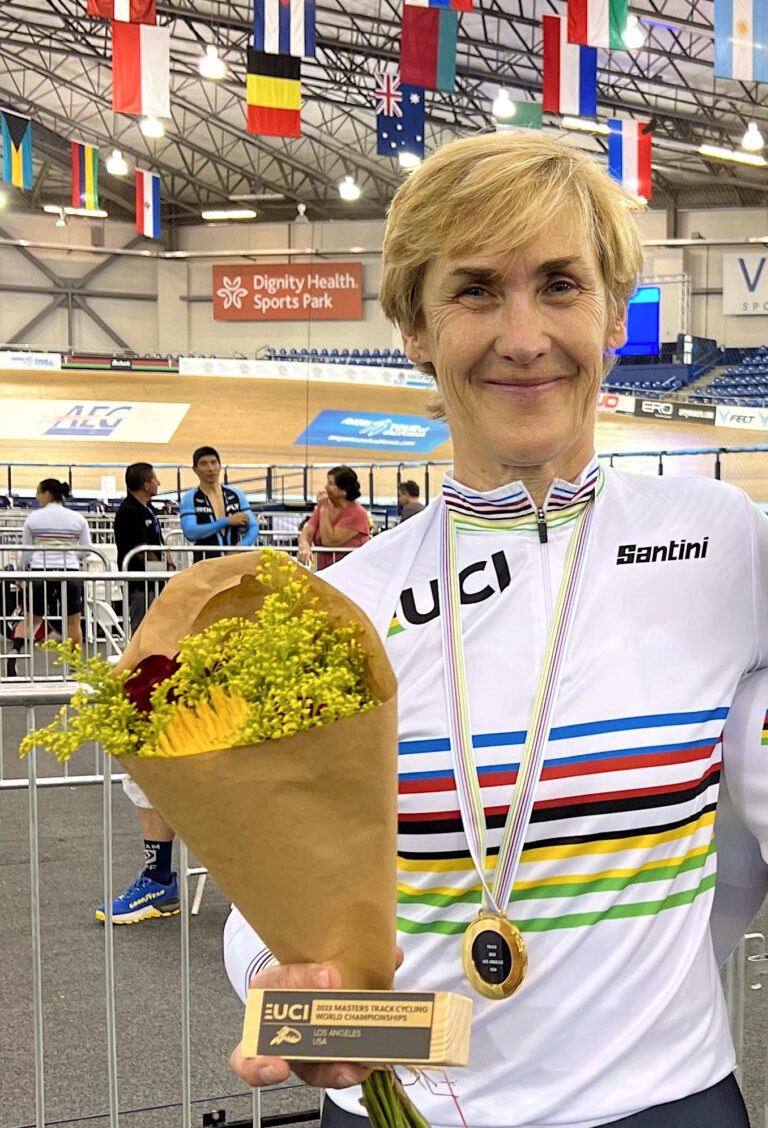
5. Anna Whitten
How would you describe yourself as a cyclist?
I am a Masters track cyclist with a focus on sprint events.
Biggest year?
Since switching my focus to the track, I usually do 4,000-5,000km per year on the road.
Typical week?
I don’t really have a typical week. It all depends on the time of year and when my next event is. As a track sprinter with regular access to a velodrome, long efforts on the road are not an essential part of my training week.
Key factors?
Closeness to competition and also the weather. I won’t be on the road if it’s wet!
How closely do you listen to your body?
Very. The intensity of my rides is always dependent on how the body is feeling.
Structured training plan?
Yes. As a track rider who targets particular events during the year, having a structured training plan is very important for me.
Do you pay attention to other riders?
No. The level of training needed is different for each individual depending on their circumstances and goals.
6. Russell Menzies
How would you describe yourself as a cyclist?
I just love riding. I’ve done plenty of racing over the years and these days I’m also a coach. I always try to be a role model for the athletes I work with, using my experience and never shirking the load. I’ve also found, as I get older, I enjoy getting out by myself. I don’t mind my own company!
Biggest year?
About 24,000km. My average is usually 20,000-22,000km and this year’s goal is 25,000km. With my coaching I tend to train with my athletes quite a lot, so I do ride further than I would otherwise.
Typical week?
Anywhere from 400-500km, although at some points it could be up around 700km. Over Christmas and visiting Adelaide, up to 1,000km.
“…I confess also to being a ‘Strava stalker’ where I will check the training volumes of people I meet…”
Weekly target?
For me the magic number is about 400km. I’ll ride 50-70 km on weekdays and then try to put in a good couple of 100km+ rides over the weekend.
Why that particular number?
It’s not so much about the kilometres, but time on the bike. I would average 14-20 hours a week for the majority of the year. I aim for high intensity rides at least twice a week.
What if you don’t achieve it?
I do feel a little guilty if I’m not reaching my weekly targets. If I fall too far behind, I will look at doing a few more kilometres to get back on track.
Key factors?
It mostly revolves around being organised and managing disruptions.
How closely do you listen to your body?
Rest is extremely important to aid in recovery and allow me to ride at a high level. I use apps to track heart rate, sleep etc. If you don’t feel it, then don’t do it, back off.
Structured training plan?
A big part of my business is designing structured training programs for my athletes. I also set myself very specific programs and follow them closely.
Do you pay attention to other riders?
I do keep an eye on things, particularly riders who may be competitors for my athletes. I also follow a number of WorldTour riders and find it fascinating to see the rides they’re doing.
WHO says?
For general cardiovascular fitness, the World Health Organisation recommends adults complete a minimum 150-300 minutes a week of moderate intensity exercise or 75-150 minutes of vigorous intensity aerobic exercise (or a combination of both).
So, if general fitness is your primary goal, riding for at least 3-5 hours a week is a good starting point. (Source: World Health Organization – October 2022)
This article was written by Peter Maniaty and first appeared appeared on www.bicyclingaustralia.com.au
